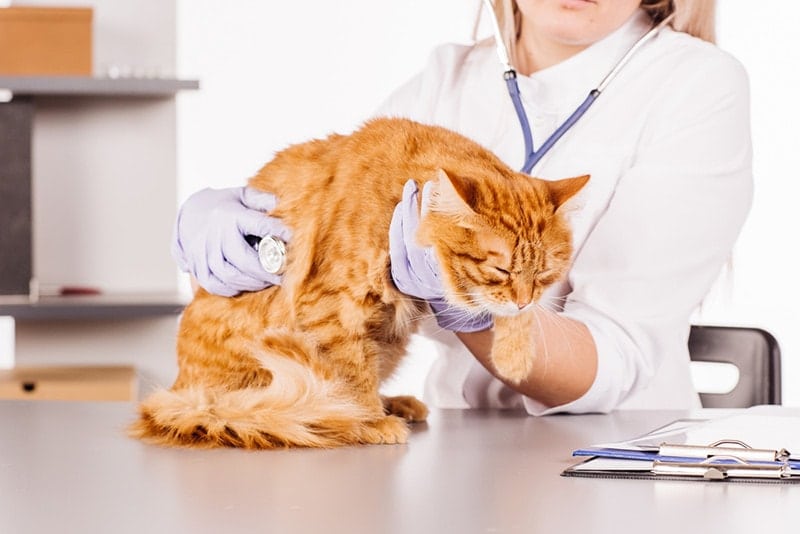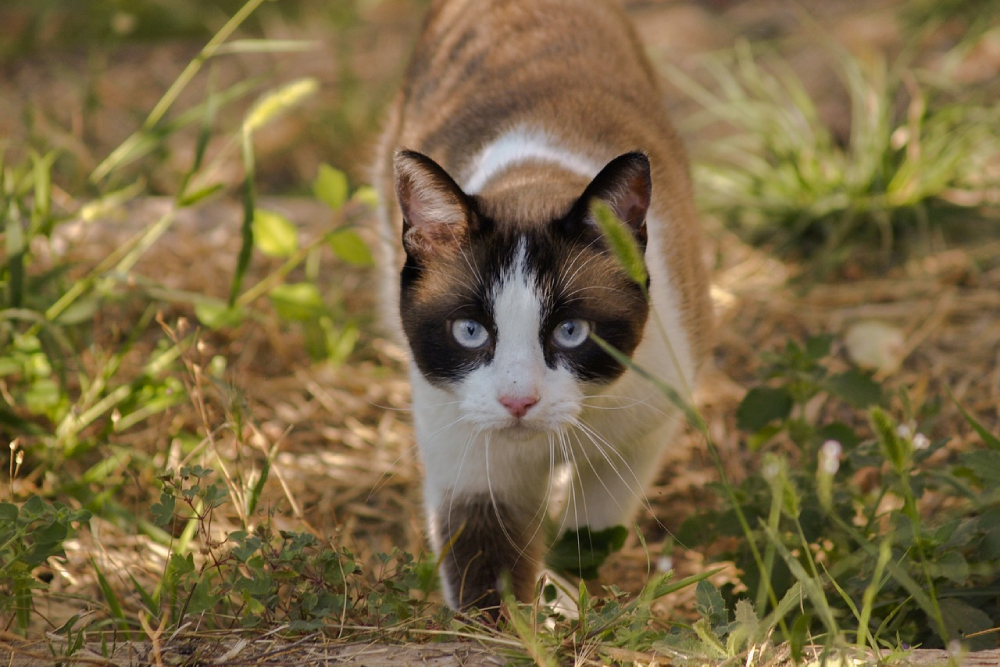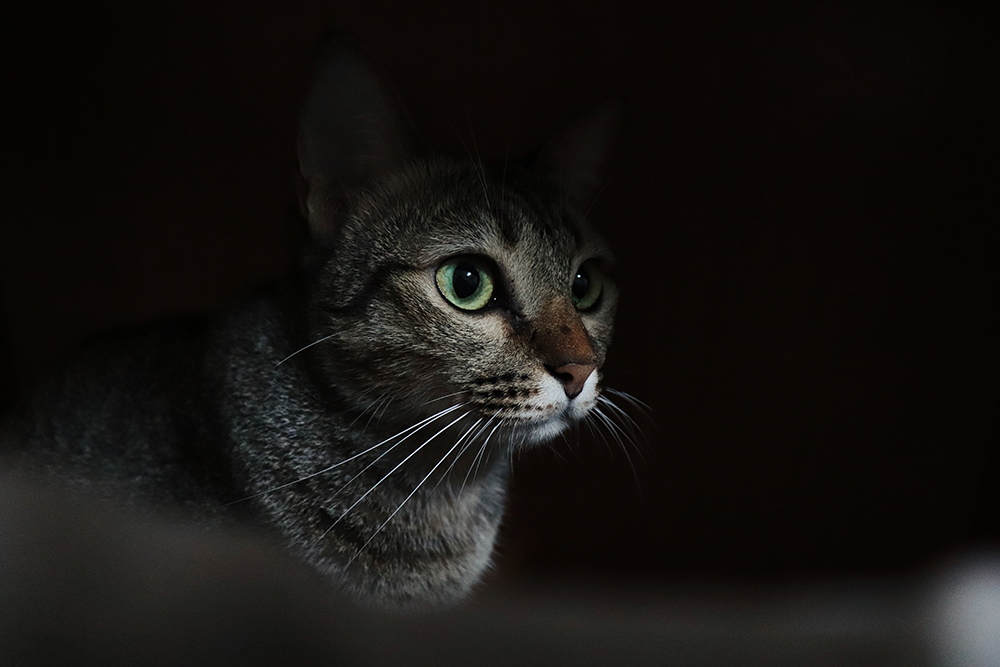One of the best ways to love your kitty is to get regular veterinary care. But how often is “regular?”
Unfortunately, there’s a belief that cats don’t need vet care as much as dogs. But as a loving cat parent, it is crucial to take your cat for a vet visit at least annually, or more if your cat has other health needs.
Kitten Vet Care
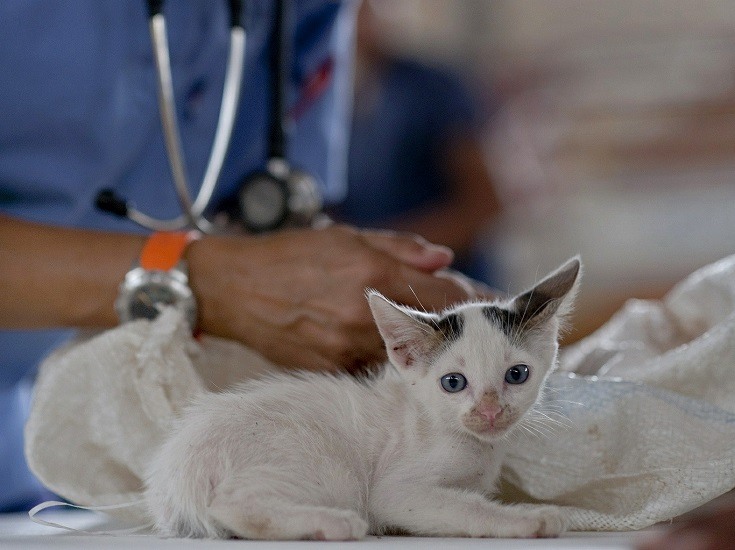
New cat parents should schedule an appointment with a vet soon after adoption. It’ll provide an opportunity for you and your chosen vet to discuss the necessary vaccination and neutering schedule for your kitten’s first year. In addition, your vet will be able to start a medical record that tracks your kitten’s relevant medical history, alongside other information (such as their weight gain pattern).
Most veterinarians begin vaccinating a kitten approximately 2 weeks after they’ve been adopted, provided they are over 6-8 weeks of age and in good health. This 2 week “observational period” is important – it lets you observe your kitten for a period of time to assess their general health status. Being weaned is a stressful time for a kitten’s body, and many diseases can flare up within 1-2 weeks of weaning. Therefore, this wait is essentially there to make sure your kitten is indeed healthy (kittens that are sick usually cannot be vaccinated).
In addition to vaccinations, your vet will also help formulate an internal and external parasite control regimen that’s appropriate for your kitten. These regular treatments are designed to ensure your kitten is free of intestinal worms, mites, fleas, and other parasites.
Most cats are also spayed or neutered in the first year of their life to prevent unwanted litters and unwanted behaviors associated with feline mating (caterwauling, escaping, spraying, and so on). An appropriately timed spay or neuter procedure also offers better protection against some diseases and ailments which may happen later in life.
Adult Cat Vet Care
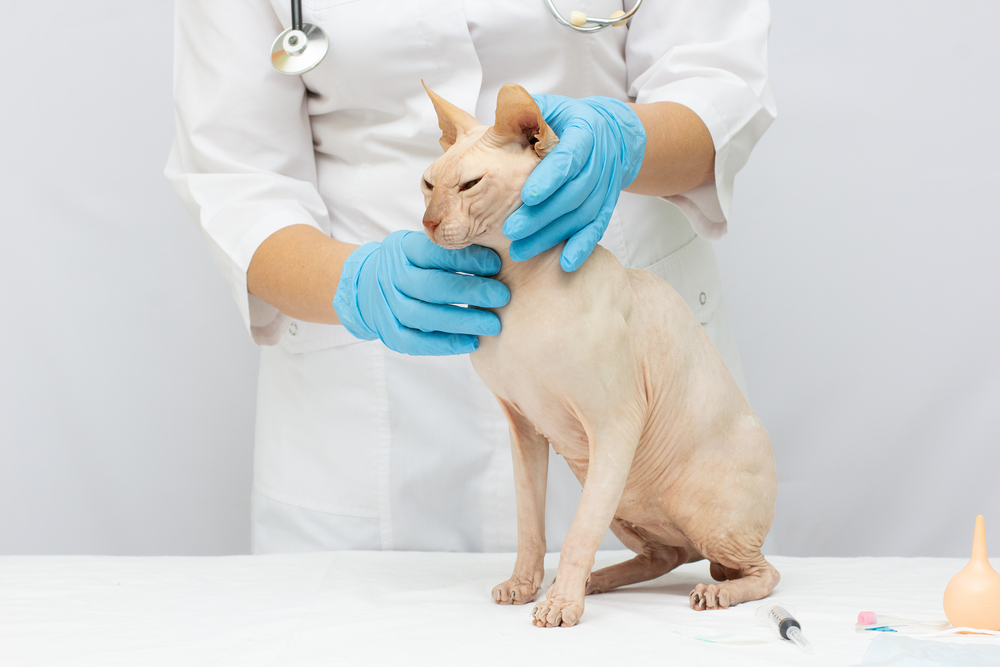
The adult years of a cat’s life usually involve annual visits to a veterinarian for otherwise healthy cats to ensure that they are indeed healthy, and to administer any vaccines that should be repeated (this depends on where you reside and how you manage your feline). Most veterinarians also recommend a dental cleaning procedure with this visit, along with a blood and urine test, to have a record of your cat’s health status.

If you need to speak with a vet but can’t get to one, head over to PangoVet. It’s an online service where you can talk to a vet online and get the personalized advice you need for your pet — all at an affordable price!
Elder Cat Vet Care
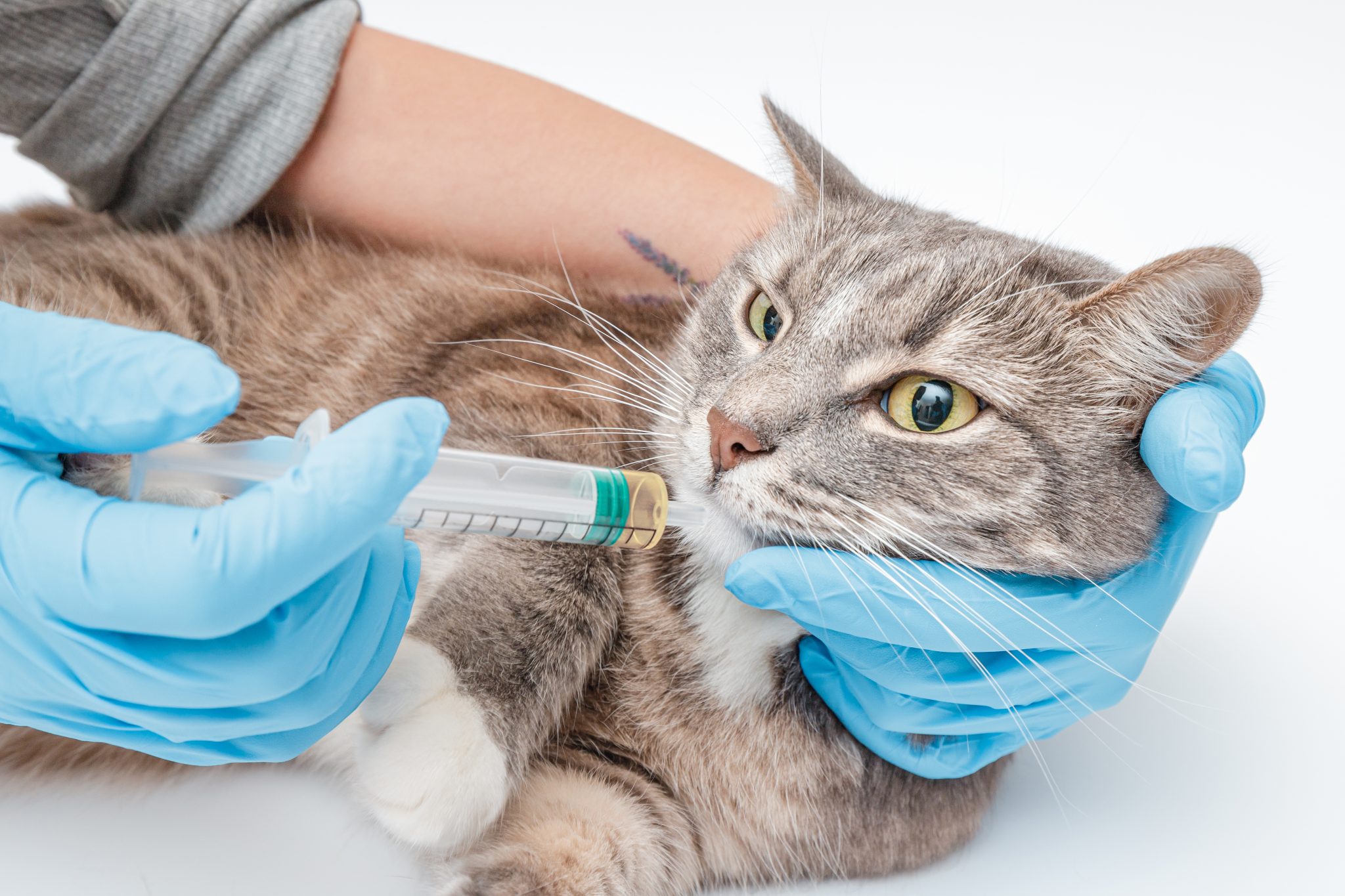
Senior cat vet visits generally start when your cat reaches 8-10 years. Most veterinarians often recommend bi-annual visits for healthy senior cats. Assessing their health more frequently increases the odds of identifying any potential issues or ailments sooner rather than later.
Though old age itself isn’t a disease, it can be a contributing factor to the development of certain other diseases. That being said, contrary to popular belief, it is entirely possible for senior cats to live a healthy, pain-free life with proper veterinary and at-home care.
The 6 Signs That a Cat Needs to See a Vet
1. Change in Appetite
Cats instinctively mask pain whenever possible, however, an early indication of things going awry is a sudden increase or decrease in your cat’s appetite.
This applies to their hydration as well. An increase in thirst or an increase in litter box usage may hint at potential issues, like a urinary tract infection.
2. Excessive Fatigue
Contrary to popular belief, cats aren’t lethargic all the time. Therefore, it should concern you if your kitty suddenly becomes overwhelmingly lethargic. It may be apparent in instances like if your cat does not seem excited over things they usually enjoy, is sleeping more than usual, and is lacking interest in socialization.
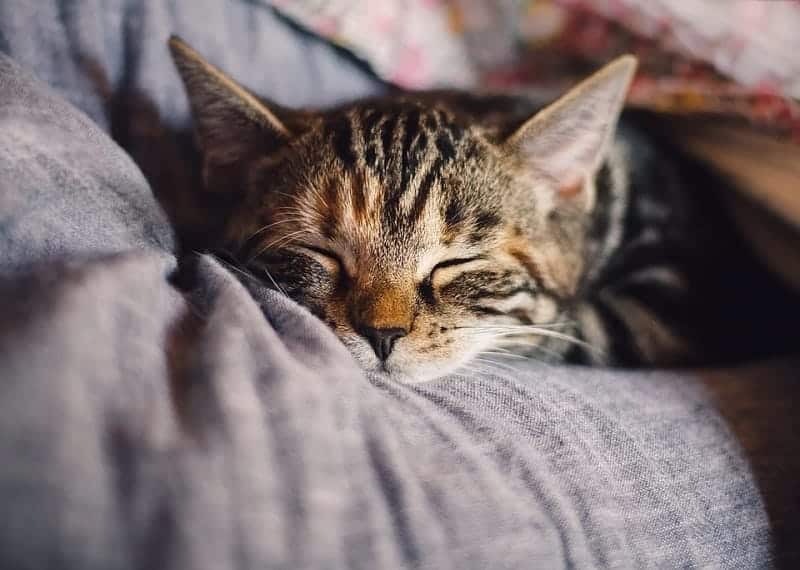
3. Changes in Your Cat’s Urine and Fecal Output
Unsurprisingly, most owners attribute a kitty’s undesirable toilet habits to behavioral problems. However, if a well toilet trained cat starts avoiding urinating in the litter box, they could be suffering from a urinary infection or a bowel issue.
4. Abnormal Gait
If your cat is limping, avoiding putting weight on a leg, or appears to be struggling to walk, they should be looked at by a vet as soon as possible.
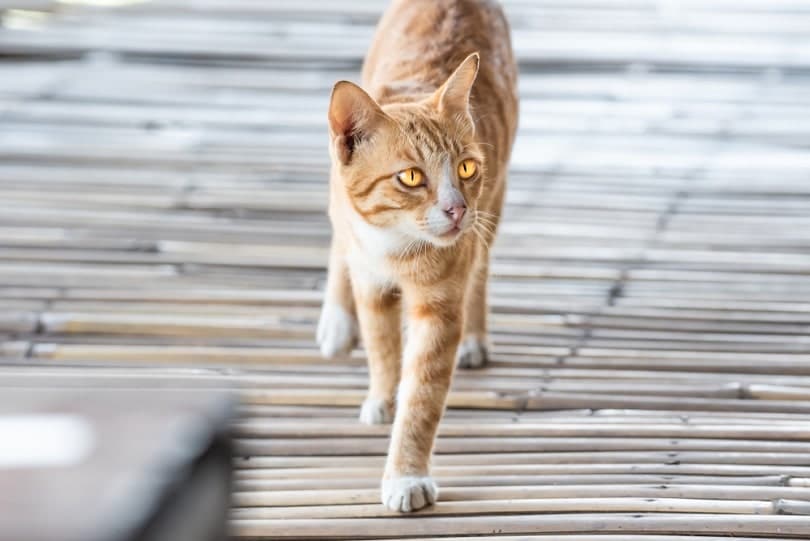
5. After a Major Trauma
Check-in with your vet if your cat fought with another animal, if they had an unfortunate accident, or if they went missing and are acting strange upon return.
6. A Lump or Unusual Growth
Some bumps may appear harmless, however, any abnormal bump or growth you notice anywhere on your cat’s body warrants medical attention from a veterinarian.
Summary
Routine veterinary visits are key to ensuring your cat’s welfare throughout their life. Though kittens and senior cats often require more frequent visits to a veterinarian than a healthy adult cat, it is still important to keep an eye out for possible signs that your cat might be suffering from an ailment which requires medical care.
See Also:
- The Importance of Regular Cat Checkups: 4 Vet Reviewed Benefits
- Vet Checklist: What to Bring to Your Cat’s First Visit (Vet-Approved)
Featured Image Credit: Andrey_Kuzmin, Shutterstock

